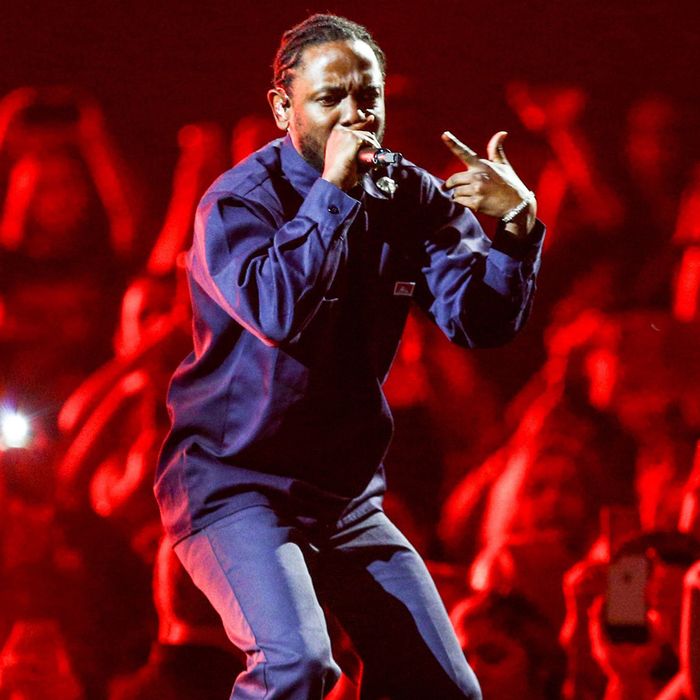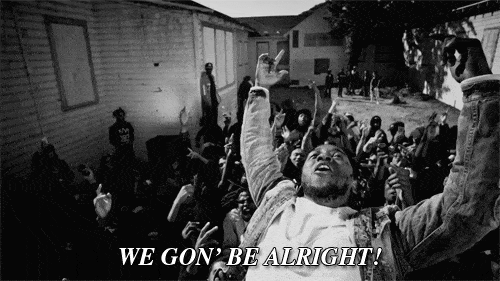

“It says that even though things are tough, and they might even get worse before they get better, we have faith that things will be okay, and that together the movement will ultimately win.”Īs a new wave of protests break out across the country in 2020, there are a different set of songs that are soundtracking the movement, and not all of them are overtly political. Potash suggests the pre-chorus is spreading a message of hope. And I think that ‘Alright’ is definitely one of those records that makes you feel good no matter what the times are.”

“Four hundred years later, we still need that music to heal. “Four hundred years ago, as slaves, we prayed and sung joyful songs to keep our heads level-headed with what was going on,” Lamar told NPR. But despite everything, he ends by assuring listeners that “we gon’ be alright.” He then moves into the present by touching on the current instances of police killing Black people in the streets. On the pre-chorus, Kendrick starts by addressing the ugly history of pain and struggle within the Black community. My knees gettin’ weak, and my gun might blow Lookin’ at the world like, "Where do we go?"

The song’s pre-chorus has the most impactful message: “Alright” was inspired by Kendrick’s trip to South Africa where he visited Nelson Mandela’s prison cell on Robben Island, and he has said that he was thinking of America’s history of slavery and systemic oppression when he wrote the lyrics. The chords that Pharrell laid down as the foundation for the track and Sounwave’s production is what gets people dancing at marches and rallies, but Kendrick’s lyrics ultimately made it the powerful protest song that it is. Not playing the victim, but still having that, ‘yeah, we strong.’” “I wanted to approach it as more uplifting but aggressive. “It was a lot goin on, and still to this day, there’s a lot going on,” he explained in a 2016 interview with producer Rick Rubin. While there are similarities to previous protest anthems-the jazz instrumentals and clear social commentary-the tone of “Alright” is noticeably more uplifting, which Kendrick has explained was intentional. But “Alright” wasn’t set out to be a protest song in the same way these songs were. dropped “Fuck Tha Police,” a controversial song combatting police brutality and racial profiling. The following decade, Marvin Gaye released “What’s Goin On,” an introspective record that explores poverty and the Vietnam War. In 1964, Sam Cooke released “A Change Is Gonna Come” in response to the Civil Rights Movement. It was later played during the Million Man March for racial equality, a Movement for Black Lives conference at Cleveland State University, Trump protest rallies, and countless Black Lives Matter events across the country.įor decades, artists have used their music to speak out against injustice. It’s difficult to pinpoint the exact moment the song was first used in a protest setting, but many trace it back to July 2015, as news of Sandra Bland’s death while in police custody spread, and protests ensued. Since its release in 2015 on To Pimp a Butterfly, “Alright” has been widely accepted as one of this generation’s most important protest anthems. “When the song came on, there was some dancing and singing along and generally just a happy atmosphere.” “The energy was incredible,” recalls Joshua Potash, an educator who witnessed the D.C. Sometime around 1:30pm EST, Kendrick Lamar’s Grammy-winning single “Alright” played on the speakers, sparking a group sing-along. And although there were instances of intense conflict with officers, there were also uplifting moments of solidarity. It was the ninth day of protests against police brutality and racism, following the police killings of George Floyd, Breonna Taylor, and countless other Black people in this country. The large yellow words painted on the ground-“Black Lives Matter” and “Defund the Police”-were mostly covered by the feet of protesters, but the echoes of the crowd’s chants carried for blocks. On June 6, hundreds of activists and protesters gathered on Black Lives Matter Plaza, a two-block section on 16th Street in Washington D.C. You could hear their chants from the White House.


 0 kommentar(er)
0 kommentar(er)
